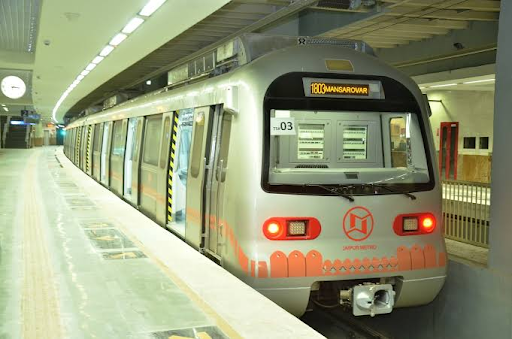Rajasthan Government Plans Jaipur Metro Expansion to Key Areas in Phase-II
The Rajasthan government is set to expand the Jaipur Metro network, aiming to connect residential colonies, the airport, and industrial and commercial areas in its Phase-II project. The expansion is poised to enhance connectivity and ease the commute for Jaipur's residents and visitors.
Initiation and Planning
According to a government official, the work on Metro Phase-2 is expected to commence in the coming months. The expansion plan was highlighted in the state budget for the year 2024–25, recently presented in the state assembly, indicating the government's commitment to expedite the metro work.
Current and Proposed Routes
Phase-1 of the Jaipur Metro covers approximately 11 kilometers within the city. The proposed Phase-2 will significantly expand this network. It aims to link industrial and institutional areas, Jaipur airport, and large residential colonies. New metro routes are also part of the plan to enhance connectivity.
To ensure the effectiveness of this expansion, the state government is updating the old detailed project report (DPR) of traffic routes for Phase-2. This update involves conducting a new traffic and transport study over a total of 61 kilometers of new routes. Notably, the 30-kilometer route from Ambabari to Sitapura will see its DPR updated. Additionally, a 10-kilometer route from Ambabari to Vidyadhar Nagar will be studied to integrate these significant industrial and residential areas into the metro network.
Expanding Connectivity
Considerations are also being made to extend the metro beyond Sitapura to the Rajasthan University of Health Sciences (RUHS). This extension will connect Jagatpura, a large residential and institutional area, to the metro network. A new 3-kilometer route is also under study to connect the old walled city area to Phase-2, further enhancing accessibility.
Moreover, Phase-2 includes plans to link the Badi Chaupad station of Metro Phase-1 to Phase-2 near Ramniwas Bagh. Another route under consideration is the 3-kilometer stretch from Transport Nagar to Sanganeri Gate via Ghatgate, aimed at integrating Agra Road in the eastern part of the city with the metro network.
A significant route being planned is the 12-kilometer stretch from Mansarovar, one of Asia's largest residential colonies, to Sanganer Police Station on Tonk Road. This route will connect the Mansarovar Metro Station, built under Phase-1, to Phase-2, enhancing connectivity for residents in this densely populated area.
Benefits and Impact
The expansion of the Jaipur Metro under Phase-2 is expected to bring numerous benefits. It will provide a reliable and efficient mode of transport, reducing traffic congestion and pollution. Enhanced connectivity will also stimulate economic growth by making it easier for people to commute to work and access commercial areas. Additionally, the improved metro network will boost the overall quality of life for Jaipur's residents by offering a modern and convenient transportation option.
In conclusion, the Rajasthan government's ambitious plans to expand the Jaipur Metro network in Phase-II are set to transform the city's transportation landscape. By connecting key residential, industrial, and commercial areas, the project aims to provide a seamless and efficient transit system, benefiting both residents and visitors. The upcoming months will see significant progress as the groundwork for this expansion begins, promising a brighter future for Jaipur's urban mobility.

Comments